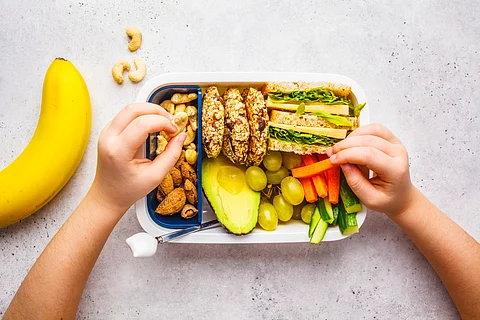

A new UNESCO report called on governments to not only expand access to school meals but to also improve their nutritional quality. While nearly half of primary school pupils globally received school meals in 2024, the agency warned that the nutritional value of these meals remained a pressing concern.
The report was published to coincide with the Nutrition for Growth summit hosted by France on March 27-28, 2025. Titled Education and Nutrition: Learn to Eat Well, the paper highlighted that 27 per cent of school meals worldwide were not developed with input from nutritionists.
Of the 187 countries evaluated, only 93 had any kind of legislation or guidance on food served in schools, and fewer still had regulations covering foods sold in cafeterias and vending machines.
Thanks to investments made in recent years, nearly half of the world's primary school pupils now have access to school meals. But we need to go further and look at what is on their plates.
Audrey Azoulay, Director-General of UNESCO
The report linked nutritious school meals to both improved health and academic outcomes. Studies showed school meals increased enrolment rates by 9 per cent, attendance by 8 per cent, and also enhanced learning. However, the lack of regulation came at a time when obesity among school-age children had more than doubled in most countries since 1990, while food insecurity also continued to rise.
UNESCO advocated for the use of fresh, locally produced foods and recommended including food education in school curricula. It also announced the development of new tools, including a practical manual and training programmes, to help governments better integrate nutrition into education systems.
Michelin-starred chef Daniel Humm, appointed UNESCO Goodwill Ambassador for Food Education in 2024, stressed the importance of healthy school food environments. “Schools must be a place where healthy habits are cultivated, not undermined,” he said. “It is an active lesson that will drive their relationship with food and empower them to make informed food choices.”
The report cited positive examples from across the globe. Brazil’s school feeding programme placed limits on ultra-processed products. China introduced milk, eggs and vegetables into rural schools. Nigeria’s Home-Grown School Feeding Programme increased primary enrolment by 20 per cent. In India, the introduction of fortified organic pearl millet in Maharashtra improved adolescents’ memory and attention span.
This year, UNESCO will create a set of tools to help governments and education professionals better address health and nutrition issues in schools. These will include a practical guide and a training programme. This work will also support the Coalition for School Meals, which UNESCO is part of, and is working to ensure that every child gets a nutritious meal at school.